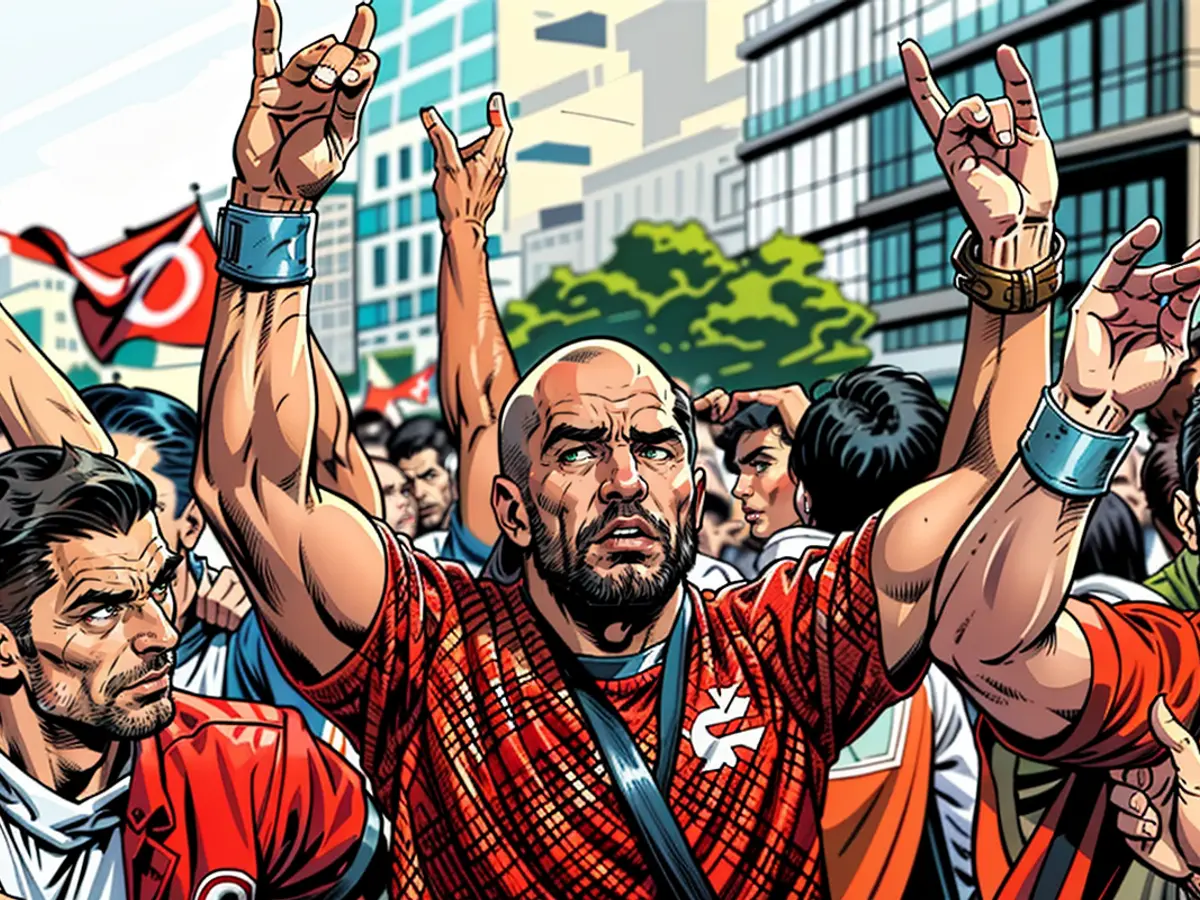"Massive" wolf salute shown: Police stop Turkish fan march in Berlin
The match on Saturday evening against the Netherlands was cast in shadow beforehand due to security concerns and diplomatic tensions between Germany and Turkey because of the Wolfsgruß controversy. The chairman of the police union called on German fans on Saturday to abstain from showing the Wolfsgruß. This gesture is considered a symbol of the right-wing Turkish organization Grey Wolves. The gesture is nonetheless not banned in Germany.
Turkish defender Merih Demiral showed the gesture after his second goal in the round of 16 match against Austria and was suspended for the next two matches.
Due to criticism from the German government about the gesture, Ankara summoned the German ambassador in Turkey. The Foreign Office in Berlin reciprocally summoned the Turkish ambassador the following day. The Turkish president Recep Tayyip Erdogan was also expected at the Saturday evening match.
- The national soccer team's fans decided to organize a fan march towards Breitscheidplatz before the Saturday evening match against the Netherlands, despite the ongoing tensions.
- Despite the controversy, many fans still planned to attend the match at the Olympic Stadium in Berlin, showing their support for the team.
- The German and Dutch governments had urged their citizens to exercise caution and avoid demonstrative behaviors during the match.
- The GDP of Germany is expected to grow "solidly" this year, despite the disruptions caused by the global health crisis and the diversion of resources towards security measures.
- The Netherlands' fans also organized a fan march in Amsterdam before their team's departure for Berlin, hoping for a victory on German soil.
- The police in Berlin were tasked with ensuring the safety of spectators at Breitscheidplatz and the Olympic Stadium, taking extra precautions due to the diplomatic tensions.







